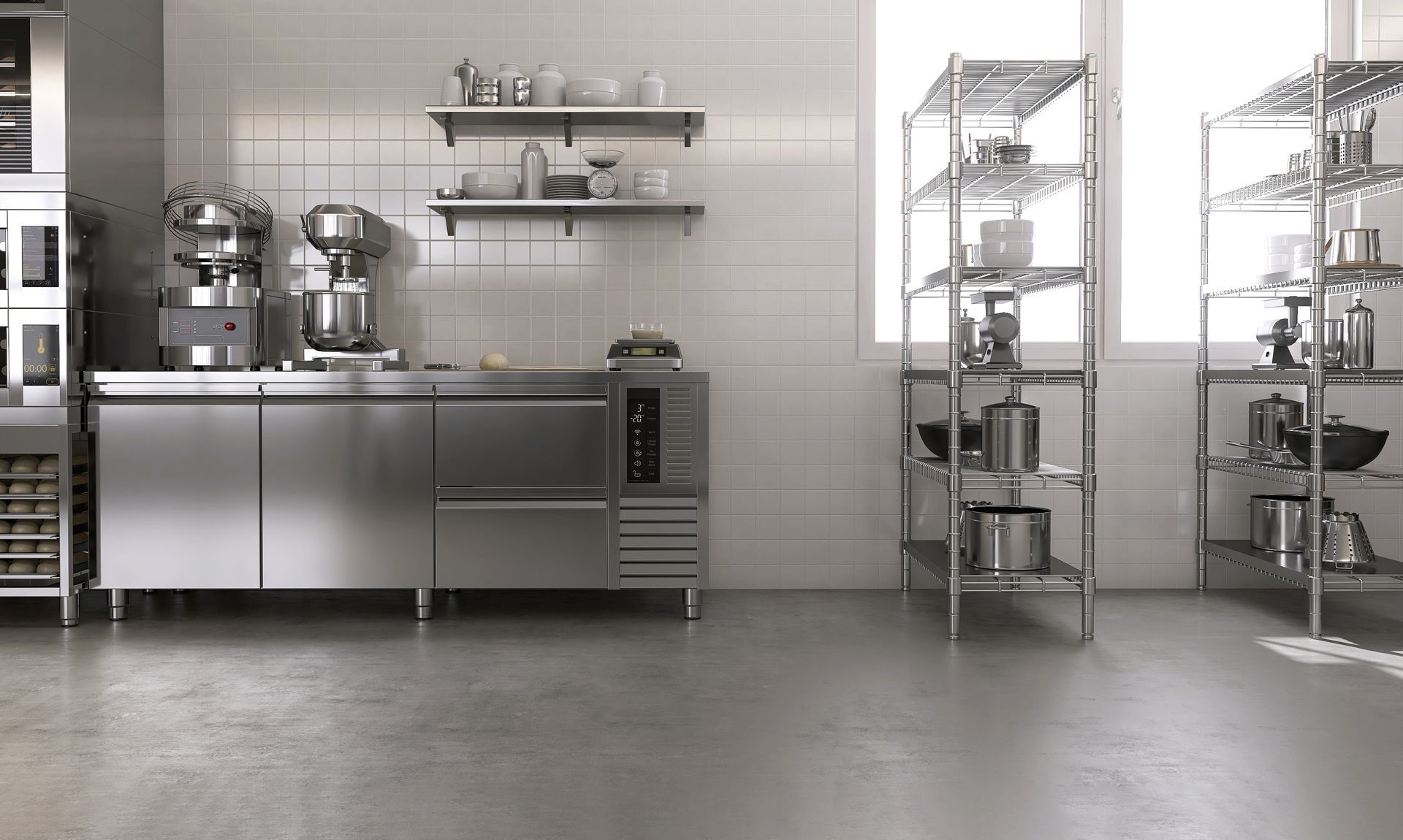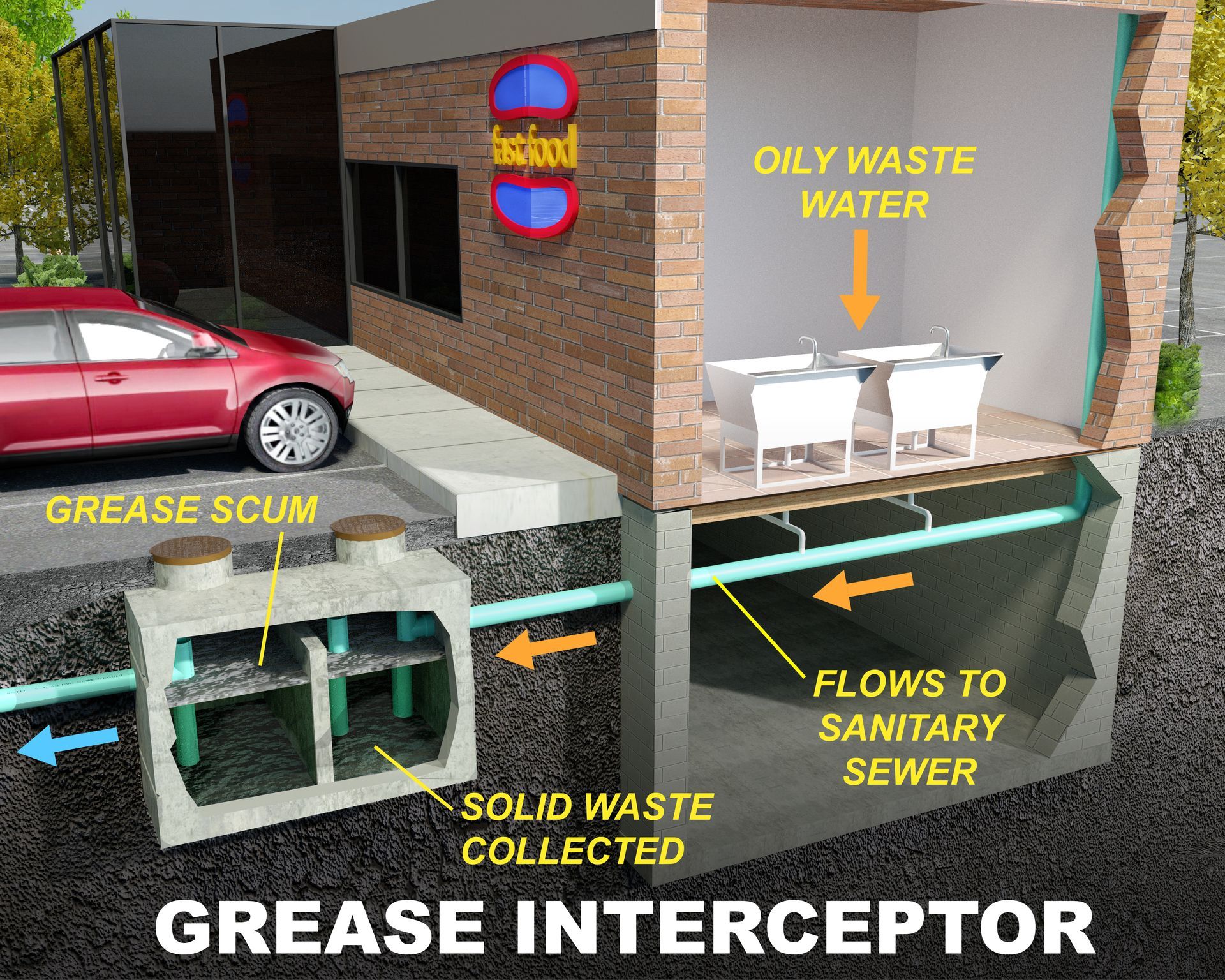Why Many Cities Ban Enzymes, Bacterial Additives and Chemical Cleaners for Grease Traps

Grease trap additives are prohibited by local ordinance, and businesses should not use them in an attempt to bypass proper grease trap maintenance and cleaning.
While these products might seem like an easy fix, they come with significant risks, which is why many cities across the U.S. have implemented strict bans on their use.
Food service business owners should also keep in mind that inspectors will want to see your cleaning manifests, which are required to avoid fines and other penalties. Your business may fail inspections if you use additives or chemical cleaners instead of professional cleaning by a licensed provider.
What Are Grease Trap Additives?
Grease trap additives include enzymes, bacteria and chemical cleaners designed to liquefy or dissolve FOG. These products are marketed to improve flow and reduce cleaning frequency. Although there are several problems with these products, the primary issue with additives is what happens to the grease after it’s broken down.
Examples of Grease Trap Additives
- Enzymes: Products marketed as enzyme-based cleaners claim to break down fats, oils and grease (FOG) into smaller particles to improve flow. There’s a high risk the FOG will resolidify once it goes down the drain line, defeating the purpose of the grease trap. They can also disrupt the biological processes used at local wastewater treatment plants.
- Bacterial Additives: These products introduce live bacteria that consume FOG and organic matter in grease traps. Bacteria often fail to keep up with the FOG produced in commercial kitchens, allowing grease to reform further downstream in sewer lines. Bacterial decomposition may also intensify odors.
- Chemical Cleaners: Harsh chemicals like caustic soda (sodium hydroxide) or acid-based cleaners are marketed for dissolving grease buildup. These are often avoided because they can damage plumbing and harm the environment.
- Biological Treatments: Similar to bacterial additives, these treatments combine microbes with enzymes to break down FOG and reduce odors. As with other bacterial and enzyme-based treatments, they don’t remove FOG but merely attempt to break it down, leading to eventual buildup elsewhere in the sewer system.
- Odor Neutralizers: Some products are sold primarily to address the odors associated with grease traps. They contain the same types of enzymes, bacteria and masking agents as the other products and ultimately cause the same types of problems.
Why Are Additives and Cleaners Banned?
Short-Term Fix, Long-Term Problems
Additives can temporarily liquefy grease, enabling it to bypass the trap and enter the sewer system. However, as the grease cools further down the line, it solidifies, creating blockages in municipal pipes. Atlanta-area municipalities bear the cost of clearing these clogs, leading to expensive repairs and disruptions to infrastructure and nearby businesses.
Environmental Harm
Many grease trap additives and cleaners are not biodegradable or environmentally friendly. When these additives reach water treatment plants, they may harm aquatic life, disrupt treatment processes, and contaminate local water supplies. Cities ban these products to protect the environment and comply with federal and state water quality regulations.
Violation of Local Codes
In cities like Atlanta where there are watershed management agencies, businesses are required to maintain their traps according to the agency’s strict guidelines. Using additives that liquefy grease violates these codes because it circumvents the purpose of the grease trap: to capture FOG at the source. Businesses caught using additives may face fines or even suspension of their operating permits.
False Sense of Security
Additives may give business owners the impression that their grease trap is being adequately maintained, leading to neglect of proper cleaning schedules. This neglect often leads to grease trap overflows, foul odors, and expensive plumbing emergencies.
Higher Maintenance Costs
While additives may reduce the frequency of grease trap cleanings temporarily, they can lead to more severe issues down the line.
Regular Grease Trap Cleaning Is Better for Both the Environment and Your Business
Instead of relying on banned additives, businesses should adhere to these best practices for grease trap maintenance:
- Regular Professional Cleaning:
Schedule grease trap cleanings with
licensed professionals at intervals
required for your grease trap size and type.
- Staff Training: Ensure employees know not to pour grease, oil or food scraps down drains.
- Proper Disposal: Only licensed and authorized companies can legally
haul off FOG and wastewater for treatment.
- Inspection Compliance: During your annual inspection, watershed management inspectors will want to see your cleaning manifests to confirm you have adhered to the required cleaning frequency. Southern Green provides these manifests in multiple formats and will even forward them on to the city on your behalf.
Keep Your Business on the Right Side of Atlanta Grease Trap Rules
Cities ban additives and cleaners for grease traps to protect their sewer systems, safeguard the environment and reduce the financial burden of grease-related blockages. These bans ensure that businesses take responsibility for managing their FOG waste responsibly, maintaining public infrastructure for everyone’s benefit.
The best way to protect your business and the local sewer system is by working with a trusted grease trap cleaning and maintenance provider. Southern Green Industries offers both one-off cleaning and scheduled grease trap cleanings. Call us at (404) 419-6887 for a free quote.
Recent Blog Posts
Contact us Today for a FREE Quote
We are committed to making grease trap cleaning and fryer oil recycling as clean and easy as possible. If you’d like to learn more about our services or get a quote, give us a call at (404) 419-6887.



